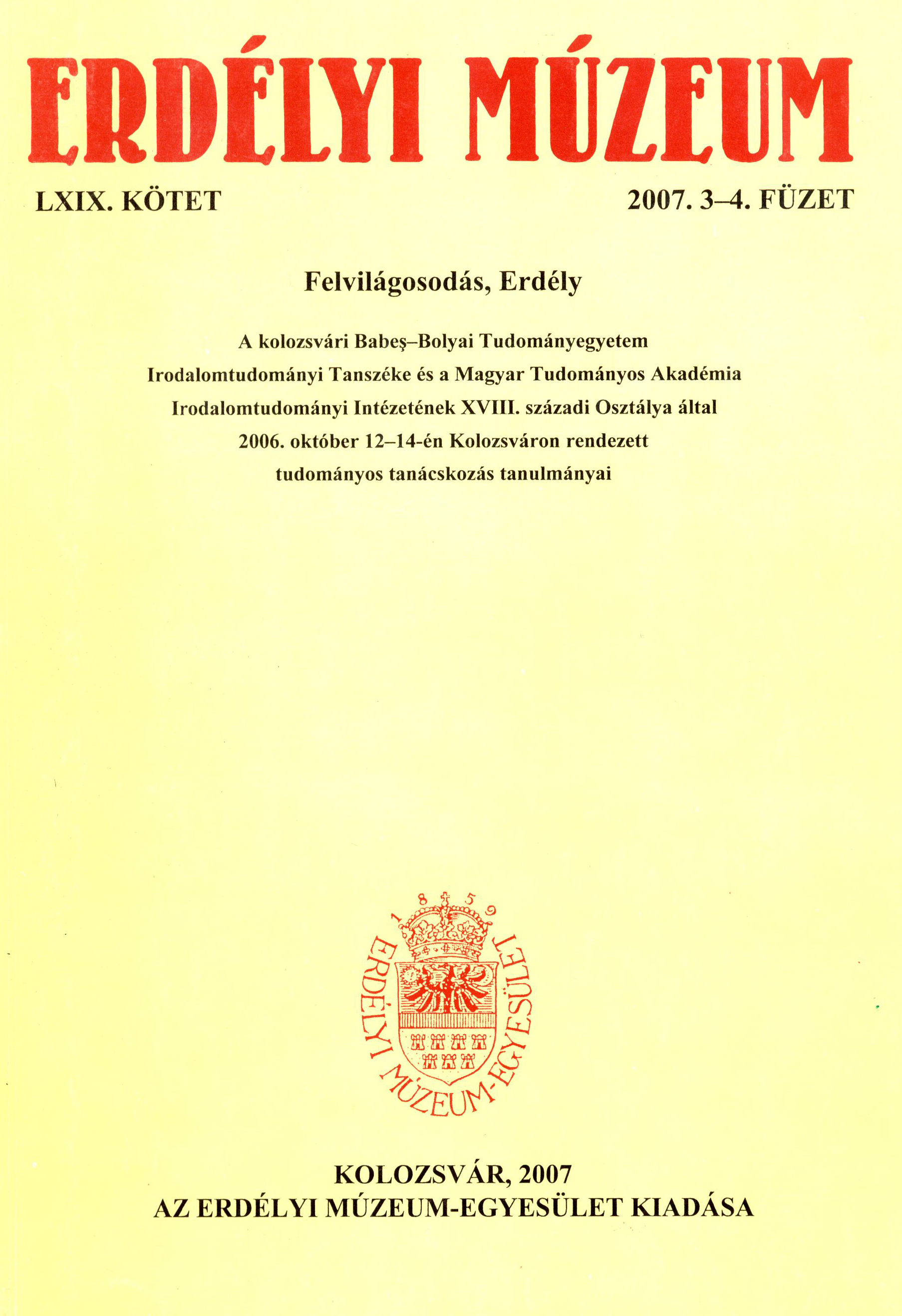A polihisztor viselkedéshagyomány erdélyi magyar tudósok körében
The Attitudinal Tradition of the Polyhistor Among Scholars from Transylvania
Author(s): Tímea BerkiSubject(s): Hungarian Literature
Published by: Erdélyi Múzeum-Egyesület
Keywords: Transylvanian polyhistors; Sámuel Brassai; Ottó Herman; 19th century;
Summary/Abstract: Sámuel Brassai was called the last Transylvanian polyhistor in Imre Mikó’s book. We also know about publications that use this same term for Brassai’s disciple, namely Ottó Herman who was much younger than his master and whose scholarly activities extend even to the 20th century. Sámuel Brassai, mentioned as Nestor of sciences was a peculiar figure of his century’s academic life. His all-embracing works were difficult to understand in the 1860s, and they are still hard to comprehend, since he had published his discoveries, opinion, professional findings and objections in several disciplines and languages. Exactly the disciples segregated and the professional identities differentiated in the course of the 19th century have made more difficult the treatment of the oeuvre that had been still founded upon the earlier notion of the scholar and had left the specialization out of consideration. However, this is due to the successful meeting of the scholarly personality and Brassai’s figure and socialization. His scholarly attitude didn’t hurt any disciples studied by him, but he has become strange, incomprehensible with time and on the other hand reason of cultic attitude due to the high standard of his knowledge and his efficiency. His socialization, bringing-up and confession can be standpoints of research, since all these are components of his becoming a scholar. This presentation on one hand traces this becoming through Brassai’s published writings, and on the other hand works on those sources of book history, institutional history and cultural history by which we can build up the system of both the meanings of Brassai’s status as polyhistor and the survival of this scholarly attitude in the 19th century.
Journal: Erdélyi Múzeum
- Issue Year: LXIX/2007
- Issue No: 3-4
- Page Range: 36-47
- Page Count: 12
- Language: Hungarian

